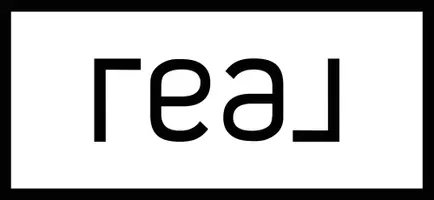Selling a Home? "How to Calculate your Closing Costs"

Selling your home is a big step, and it’s not just about slapping a price tag on your property. There are financial details, market trends, and strategies that can significantly impact your final profit. Let’s break it all down so you’re fully prepared to sell your home smartly, avoid common mistakes, and make the most money possible.
What Are Closing Costs, and What Should You Expect?
Closing costs are the fees and expenses you pay to finalize the sale of your home. For sellers, they typically total 1-3% of your home’s sale price, not including agent commissions. Knowing these costs upfront is critical to planning your financial goals and calculating your true equity.
Here’s a breakdown of what these costs usually include:
-
Title Insurance ($1,500–$2,500):
This protects the buyer from ownership disputes, liens, or errors in the property’s title. -
Transfer Taxes (0.5–2% of Sale Price):
These are taxes or fees charged by your state, county, or city to transfer property ownership. -
Escrow Fees ($1,000–$2,000):
These cover the costs of managing funds and preparing paperwork during the sale. -
Outstanding Property Taxes:
Any unpaid taxes will need to be settled at closing. -
Repairs or Credits (Varies):
Buyers often ask for concessions or credits to cover repairs based on the home inspection.
*Does the 1-3% Include Agent Commissions?
No, the 1-3% closing costs are separate from real estate agent commissions. Commissions, which typically range from 4-5.5%, are split between your agent and the buyer’s agent.
Real Estate Agent Commission: Why It’s an Investment in Your Sale
The agent’s commission is your investment in the sale process. With commissions in the 4-5.5% range, your agent is there to do much more than list your home. They’re responsible for pricing, marketing, negotiating, and ensuring the transaction goes smoothly.
Example:
Let’s say you’re selling your home for $600,000. If the total commission is 4.5%, that’s $27,000, split between your agent and the buyer’s agent. After closing costs and mortgage payoff, you’re left with your final net profit.
Why It’s Worth It:
- Marketing Expertise: Agents invest in professional photography, staging, and online advertising to attract buyers.
- Negotiation Skills: A good agent will negotiate higher offers and navigate repair requests, saving you money.
- Time Saved: Handling showings, paperwork, and the details of the sale is their full-time job—so it doesn’t have to be yours.
Shifting Market Trends: Why Buyers Are Asking for More
Today’s housing market is different from what we’ve seen in recent years. With rising interest rates and higher costs of homeownership, buyers are more cautious and often ask for more from sellers to offset their expenses. Here’s what that looks like:
-
Increased Repair Requests:
Buyers are scrutinizing homes more closely during inspections. Even minor issues like leaky faucets, outdated appliances, or worn flooring are becoming points of negotiation.Example:
A buyer may request repairs for minor roof damage or ask you to replace aging HVAC systems...items that might have been overlooked in a competitive market. -
Higher Seller Credits:
Instead of asking for repairs, buyers are often requesting credits to cover costs themselves. These credits are sometimes used to buy down their interest rate or reduce closing costs.Example:
A buyer might ask for a $10,000 credit to address cosmetic updates or reduce their mortgage rate. -
Stronger Negotiations Post-Inspection:
Buyers are leveraging inspections to negotiate aggressively, even for small issues. Sellers are more likely to make concessions now than in a hotter market.
How to Handle Repairs and Credits as a Seller
-
Be Proactive:
Consider getting a pre-inspection before listing your home. This gives you a chance to address issues upfront, reducing surprises during the buyer’s inspection. -
Offer a Home Warranty:
A home warranty can provide peace of mind for buyers, covering major systems and appliances for the first year after purchase. -
Price It Right:
Pricing your home competitively can attract multiple offers, reducing the likelihood of buyers asking for excessive concessions. -
Decide What You’re Willing to Cover:
Work with your agent to set clear boundaries on what repairs or credits you’re willing to offer. This will make negotiations smoother.
Avoid These Common Seller Mistakes
-
Overpricing Your Home:
Setting an unrealistic price often results in fewer showings and extended time on the market, which can lead to price reductions. -
Skipping Repairs:
Neglecting small fixes can make buyers question the overall condition of your home, leading to lower offers or requests for credits. -
Cutting Corners on Marketing:
High-quality photos and a strong online presence are critical. Without them, your home may not stand out to buyers. -
Underestimating Closing Costs:
Many sellers focus only on their home’s sale price without factoring in costs like commissions, taxes, and escrow fees. This can lead to disappointment when calculating your final profit.
Final Thoughts: Don’t Guess on Your Profits...Be Sure
Selling your home is one of the biggest financial moves you’ll make, and it’s easy to overlook costs or miscalculate your equity. Many sellers think they’ll walk away with more money than they actually do because they don’t factor in all the details...closing costs, agent commissions, and buyer demands.
Before you start doing the math on your own, consult with an experienced agent. We can help you calculate everything accurately, avoid common mistakes, and create a strategy to sell your home for the most money possible.
Let’s Get It Right the First Time
If you’re thinking about selling, let’s chat. I’ll walk you through what to expect, show you how to maximize your profit, and make sure you’re prepared for today’s market.
Jessica Vukobratovich
📞 480-678-9397
📧 jessiev.realestate@gmail.com
Recent Posts












